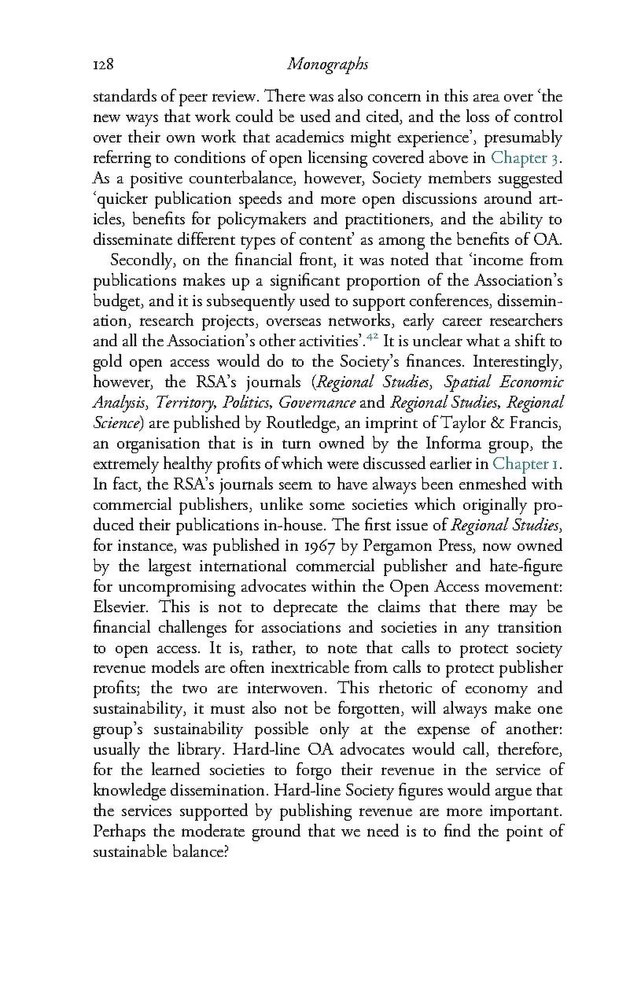standards of peer review. There was also concern in this area over ‘the new ways that work could be used and cited, and the loss of control over their own work that academics might experience’, presumably referring to conditions of open licensing covered above in Chapter 3. As a positive counterbalance, however, Society members suggested ‘quicker publication speeds and more open discussions around articles, benefits for policymakers and practitioners, and the ability to disseminate different types of content’ as among the benefits of OA.
Secondly, on the financial front, it was noted that ‘income from publications makes up a significant proportion of the Association’s budget, and it is subsequently used to support conferences, dissemination, research projects, overseas networks, early career researchers and all the Association’s other activities’.42 It is unclear what a shift to gold open access would do to the Society’s finances. Interestingly, however, the RSA’s journals (Regional Studies, Spatial Economic Analysis, Territory, Politics, Governance and Regional Studies, Regional Science) are published by Routledge, an imprint of Taylor & Francis, an organisation that is in turn owned by the Informa group, the extremely healthy profits of which were discussed earlier in Chapter 1. In fact, the RSA’s journals seem to have always been enmeshed with commercial publishers, unlike some societies which originally produced their publications in-house. The first issue of Regional Studies, for instance, was published in 1967 by Pergamon Press, now owned by the largest international commercial publisher and hate-figure for uncompromising advocates within the Open Access movement: Elsevier. This is not to deprecate the claims that there may be financial challenges for associations and societies in any transition to open access. It is, rather, to note that calls to protect society revenue models are often inextricable from calls to protect publisher profits; the two are interwoven. This rhetoric of economy and sustainability, it must also not be forgotten, will always make one group’s sustainability possible only at the expense of another: usually the library. Hard-line OA advocates would call, therefore, for the learned societies to forgo their revenue in the service of knowledge dissemination. Hard-line Society figures would argue that the services supported by publishing revenue are more important. Perhaps the moderate ground that we need is to find the point of sustainable balance?
